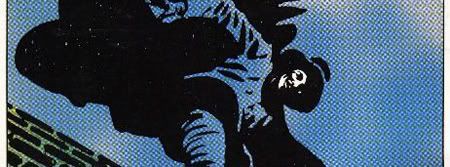Alan Moore explores dystopia within V for Vendetta in a very similar fashion as George Orwell in 1984. Both works establish a totalitarian regime in Great Britain, and both focus on a “future” world that, despite being history as of now, isn’t necessarily futuristic. The setting of both works is grounded in reality for the most part, and as such, inspires readers to believe that the resulting dystopias are more possible, and ultimately, more fearful.
It’s strange to assume that otherworldly and seemingly impossible things are less fearful than the familiar. However, through some byproduct of human reality, it is almost always the case that skewing the familiar is more unnerving than the fantastic. Not to leap away from the literature at hand, but this is very prevalent in the production of digitally animated films. For this reason, Disney, Pixar, and Dreamworks consecutively choose to employ a stylized look to all their creations, as opposed to something like The Polar Express, in which we notice that closeness to reality, and are immediately repelled by it. Animators and those working in robotics have noticed this phenomenon, and labeled it the Uncanny Valley. Literature isn’t foreign to the valley, and we see that in work like V for Vendetta and 1984. In short, the closer these works seem to reality, the more they frighten us, while the more fantastic elements they propose, the less threatening they seem.
It’s particularly noticeable in the way in which we derive fear from V for Vendetta. So much of the resultant fear from reading the novel is directed at the totalitarian regime and fascism, the more realistic components of the work, that readers never identify V as an anti-hero, nor do they ever draw fear from the power and threat he poses to the human race. In his dialogue over the television broadcast V clearly proves the point that he defines himself as beyond human. He likens the human race to factory workers while he is the overseer, the management. This notion of an evolved being, even one that was created by human experimentation, is too fantastic to seem fearful, and as such, is written off by most readers.
It is in Alan Moore’s other most prominent work, The Watchmen, that he explores this fear alone. In a fictional world in which beings can have superpowers, humans are already facing an entirely different sort of dystopia than that of a totalitarian regime. This sort of dystopia is explored almost solely in the world of comic books and not literature, although The Lathe of Heaven, as far as I have inferred, seems to raise the question as well.
That isn’t to suggest that the totalitarian regime within V for Vendetta isn’t important. It just clearly isn’t the focus of the work. Moore never crafts a vastly threatening nation like the one present in 1984. This could have been intentionally done by providing the details of a fringe criminal society, a populace almost ready to be lead free by V, or a leader that is, while still somewhat threatening, a pawn to a machine, or it could simply be the result of poor writing. Moore may have wanted to suggest this government was vastly threatening, but the novels focus on V makes it seem otherwise. This is V’s vendetta. Is it against those who have imprisoned and experimented upon him, or is it against the entire human race? Through his death has he achieved victory by freeing the people, or by crushing his enemies? V’s actions seem noble in the face of those who are willing to topple a fascist regime, as we should all be, but is it acceptable to have a human society, of any kind, fallen under the throes of a being that views himself as better than human?
Labels: Alan Moore, comics, Coursework, Dystopia, Fiction, Graphic Novles, Literature, V for Vendetta



